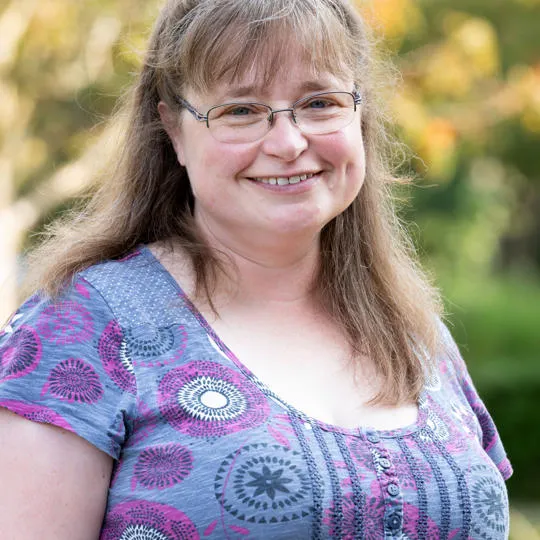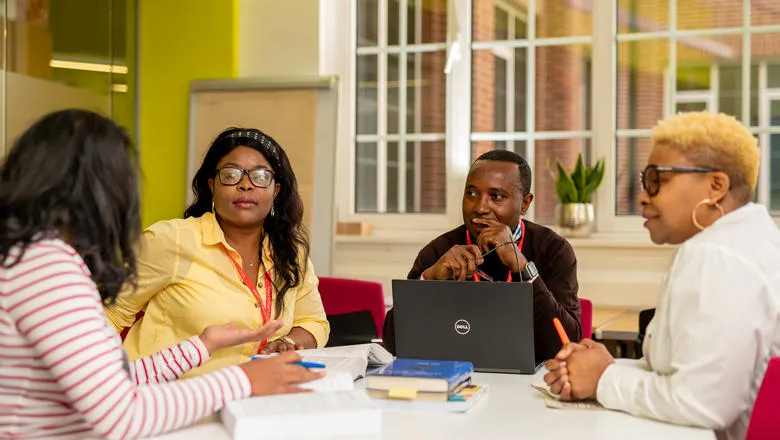Traditionally, mental health services have focused on clinical recovery, with therapeutic interventions being used to reduce or eliminate symptoms.
In 2001, UK government policy shifted to a personal recovery model where individuals are supported and empowered to find their own ways to cope and have a satisfying life, without necessarily being symptom-free.
While a personal recovery-focused approach has gained momentum in mental health policy, it requires significant system transformation, which presents challenges for professionals. King’s researchers are addressing these challenges through the REFOCUS intervention which is underpinned by the personal recovery framework, CHIME (which stands for Connectedness, Hope, Identity, Meaning and purpose in life, Empowerment). CHIME was developed by a team led by Professor Mike Slade as part of the wider Recovery research programme.
Improving experiences for mental health service users and staff
The REFOCUS intervention, is a one-year, multi-disciplinary team-level intervention targeting healthcare providers attitudes, knowledge and behaviour. The intervention was delivered by Rethink mental illness, a national charity, and South London and Maudsley NHS Foundation Trust Partners, a team of organisational consultants and coaches.
In mental health teams where the REFOCUS intervention has been fully implemented, both staff-rated scores for behaviour change and patient-rated personal recovery interpersonal scores have increased.
Service users who received the REFOCUS intervention incurred £1,062 lower service use costs compared to those in control groups. They also reported that the intervention supported them to have open and collaborative relationships with staff and to share new conversations about values, strengths and goals.
The findings from the REFOCUS programme have been widely used by service users, clinicians, educators, managers and commissioners. Policy makers have also used the research to better understand and make decisions about what mental health recovery is, how it should be measured, and what kinds of interventions support recovery within and beyond the mental health field.
In 2011, the Scottish Recovery Network, a non-profit organisation, started using the CHIME framework to help them communicate what personal recovery means:
The CHIME personal recovery framework has been used to create standalone educational resources to help inform and facilitate conversations about recovery between service users and practitioners. These resources have been integrated into course material delivered in the 85 recovery colleges across the UK. The CHIME framework of personal recovery has been highly cited (Scopus 1,590 citations) and has been particularly influential in recovery education, research, and practice.
Impact across borders
The REFOCUS intervention is an emerging approach to supporting mental health recovery internationally. The REFOCUS training manual has been translated into Cantonese, German, Icelandic, Italian and Spanish, and is being used in the UK, France and Hong Kong.
With support of King’s researchers, the REFOCUS trial has been successfully replicated in primary and second care in Australia.
Looking to the future
Looking to the future, Dr Leamy and the team are continuing to drive forward the transformation of mental health services internationally, towards a focus on personal recovery.
Dr Leamy is now leading a two year study called Supporting leaders to implement recovery and to develop a recovery-oriented workforce, funded from Stiftelsen Dam foundation, Norway, with colleagues from the Competence centre for user experience and service development (KBT), Trondheim and Norweigen University of Science and Technology.
The REFOCUS trial is currently being replicated by Dr Julien Dubreucq, a French psychiatrist. Eighteen teams from across France are taking part in this study. Training in the REFOCUS recovery intervention is being delivered over two years by Mike Slade, Mary Leamy, Amanda Green (King’s PhD student), and Noush Nabahedian (Head of Quality Improvement and SLaM partners, South London and Maudsley NHS trust).



